What Causes Fingertip Peeling? How Do You Treat It?
Find out what is causing that mysterious peeling on your hands and treat it accordingly.
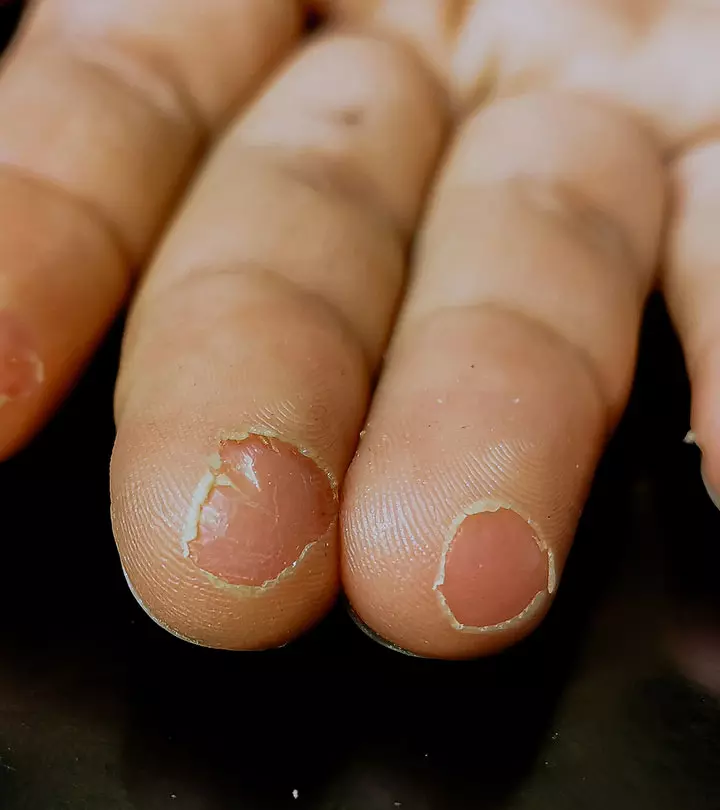
Image: Shutterstock
Seeing the skin on your fingertips peeling can be quite unsettling. Most of us have experienced skin peeling on our hands, especially on fingers, cuticles, and around the nails. They usually heal by themselves in a few days. However, the healing process can also be painful and take longer in some cases. Many factors can cause fingertips to peel. It is important to establish a precise diagnosis as this will facilitate appropriate management. In this article, all the essential information regarding fingertip peeling is laid out. Such as causes, home remedies, and prevention tips. We also advise you on how to observe your condition and how to know when it is time to consult a doctor. Keep reading to learn more.
In This Article
What Causes Fingertip Peeling?
Peeling fingertips appear as dry skin around the nails and fingertips. It can also cause rash or itching. Skin peeling on the fingertips is a common condition, and it occurs due various factors. According to Dr. Annie Gonzalez, a board-certified dermatologist, different factors can damage the skin on your fingers. “Environmental causes, as well as underlying medical conditions, can all lead to fingertips peeling,” she says.
Dr. Natalie Carlton, Dermatologist and a Fellow of the American Academy of Dermatology, says, “Skin peeling is a typical side effect a few days after sunburn. Sunburns can be quite uncomfortable and may not heal for several days or even a week. However, you can soothe them by moisturizing the afflicted areas and administering cold compresses as it heals.”
Why is the skin on your fingers peeling? Let us explain in detail. These are a few of the various factors that cause skin peeling on fingertips:
1. Frequent Hand Washing
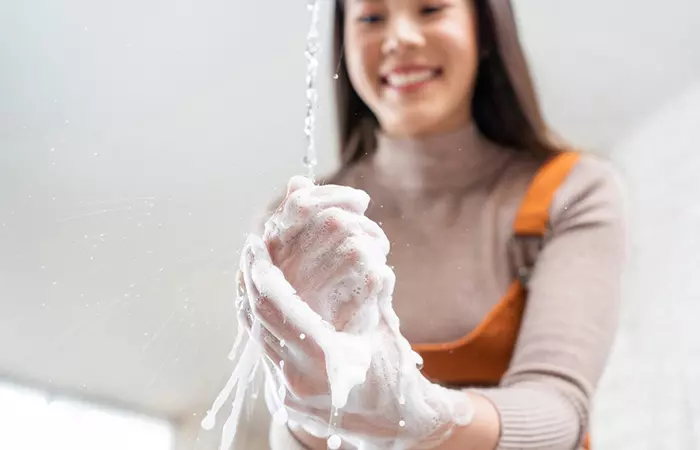
Washing your hands too frequently may lead to skin peeling. It increases skin dryness and roughness. It may also damage the lipid barrier of the skin. Using hot water and rough paper towels can also result in dry and itchy hands.
Solution
Apply a moisturizer or hand cream after washing your hands to prevent skin dryness and peeling (1). Use a mild soap and lukewarm or cold water to wash your hands. Pat your skin dry after washing instead of wiping with a towel.
Key Takeaways
- Environmental causes and underlying medical conditions can lead to peeling fingertips.
- Weather changes and excessive sunlight exposure can also lead to the peeling of the skin.
- Honey is a natural emollient and humectant that may help treat this condition.
Infographic: Easy Home Remedies To Manage Peeling Fingertips
Some thing wrong with infographic shortcode. please verify shortcode syntax2. Weather Changes
Cold weather can lead to skin issues. A Korean study published in the Skin Research And Technology journal found that just 6 hours of indoor heating in winter can increase skin dryness, redness, and wrinkles (2). Weather changes and excessive sunlight exposure can also lead to the peeling of the skin.
Solution
Use emollient creams for dry and sensitive skin. Also, avoid taking hot showers and wearing tight clothes.
3. Using Harsh Chemicals
Using products that contain harsh chemicals may affect your skin, causing fingertip peeling.
Soaps, sanitizers, deodorants, antibacterial ointments, etc., can contain harsh chemicals. Avoid using these products unnecessarily if you have dry skin, as they may cause irritation and itching.

Solution
Avoid using products with artificial fragrances and preservatives. If you have sensitive skin, conduct a patch test before using any new products.
4. Sucking Fingers
Finger-sucking and chewing on the fingertips may cause skin peeling. Some infants, or even adults, may have this habit. Saliva can over hydrate the skin and lead to skin peeling.
Solution
If your child sucks their fingers, consult a pediatrician and take their suggestion to control the issue.
5. Allergic Reaction
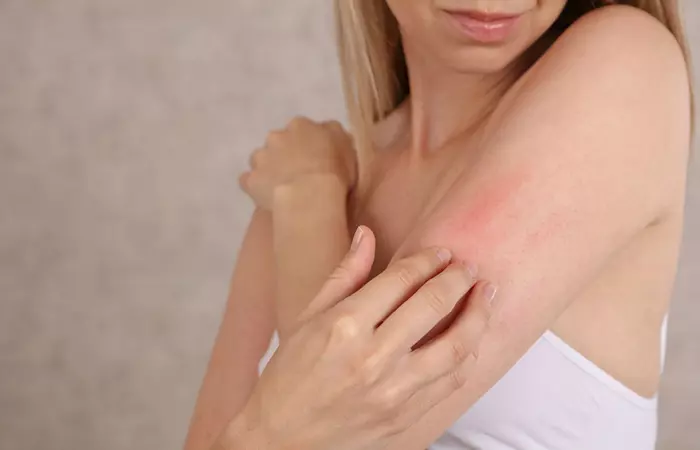
An allergic reaction may lead to skin irritation and peeling. Avoid products made from ingredients that do not suit your skin. Gloves made from latex are one such example of an allergen that leads to skin irritation (3).
Solution
Identify your allergies and be careful while trying out new products. Also, avoid wearing inexpensive jewelry or latex gloves to reduce skin peeling. Consult a doctor if you experience severe irritation or rashes.
6. Vitamin Deficiency
Lack of vitamin B3 or niacin may lead to skin peeling. It may also lead to pellagra, which causes inflammation and scaly skin (4). Vitamin B3 is essential for good skin health (5). It improves skin moisturization and barrier function.
Solution
Consume niacin-rich foods like bran, eggs, peanut, poultry, fish, whole-grain cereals, and legumes (6). Children may take 6-12 mg per day, while adults require 14-16 mg per day (7). You may consult your doctor before increasing your niacin intake.
7. Hand Eczema
Eczema causes dry, itchy, and inflamed skin. It can be caused by genetics, allergens, and environmental factors. Contact allergens and climatic conditions cause hand eczema. In addition, harmful chemicals, soaps, and dry weather may trigger an eczema flare-up (8).
Solution
Avoid using products that contain harmful chemicals. Moisturize your hands frequently, especially after a shower. Avoid using hot water to wash your hands. Consult a doctor if you experience itching or redness.
8. Psoriasis
Psoriasis causes red, scaly, crusty patches on the skin (9). It may also lead to skin peeling. Usually, psoriasis occurs on the elbows, knees, and lower back. However, it can occur anywhere on your body, even on the fingertips.
Solution
Though there is no cure for psoriasis, you can improve the symptoms through topical treatments like ointments and creams (9). In severe cases, your doctor may recommend phototherapyi A type of treatment that uses a special type of UV light to improve skin conditions caused by an overreacting immune system. .
 Did You Know?
Did You Know?9. Kawasaki Disease
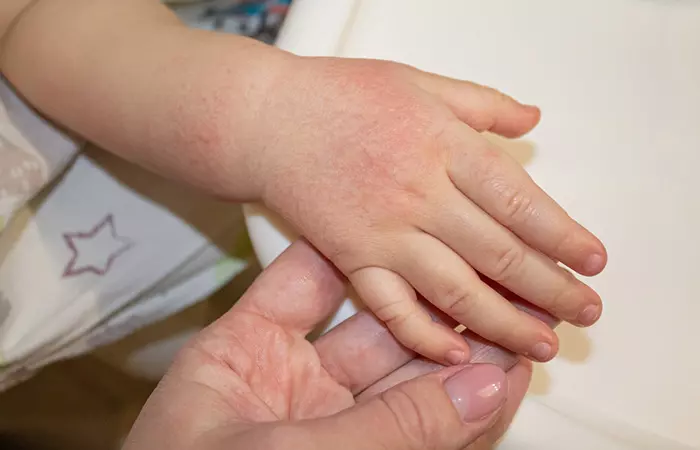
Kawasaki disease usually occurs in children under the age of 5. Redness, skin inflammation, and fever are its symptoms. Once the fever subsides, the child’s skin may peel off.
Solution
Always consult a doctor if you notice these symptoms in your child. Children can recover from this disease within 6 to 8 weeks if treated in time (10).
 Trivia
Trivia10. Exfoliative Keratolysis
This condition causes the skin to appear scaly, dry, and red and eventually peel. Using irritating soaps and cleansers can cause cracking of the skin. This disorder is linked to the disruption in the structure of the stratum corneum (11).
Solution
Use moisturizers to keep your skin hydrated. However, consult a doctor to learn more about the treatment options available.
11. Sunburnt Fingertips
Sunburn is skin damage caused by overexposure to the sun’s ultraviolet (UV) rays. It can lead to red, painful skin that may blister and peel. Sunburnt fingertips can be excruciatingly painful and, in extreme cases, may require prompt medical attention. It can also increase the risk of developing skin cancer (12).
Solution
Cool compresses and aloe vera gel can provide immediate soothing relief. Stay hydrated and protect the affected area from further sun exposure by wearing gloves or applying sunscreen. Avoid further irritation by refraining from touching or picking at the affected skin. Seek medical attention if the sunburn is severe and painful.
Apart from these solutions, there are also home remedies that may help you soothe the skin. Read on to find out how to stop skin peeling on fingers near nails with these remedies.
Home Remedies For Peeling Fingertips
Dry skin conditions can be treated by moisturizing and hydrating the skin. Many home remedies help you stop peeling fingertips.
In a study, dermatologists examined 48,630 participants to identify the prevalence of xerotic skin. Out of the total number of participants, roughly 29.4% or 14,300 individuals had xerotic skin, with older age being a significant factor. Additionally, dry skin was found to be a significant predictor for various dermatologic conditions including axillary dermatitis, atopic eczema, and psoriasis among others.The study concluded that dry skin is a common issue among adults and requires proper care.
1. Honey
Honey is a natural emollienti A substance that forms a protective layer on the skin to trap the moisture and is used to treat skin conditions like eczema. and humectanti A substance that attracts water from the air into the uppermost layer of the skin or helps balance the moisture level in the skin. . It soothes and heals the skin from conditions like dermatitis and psoriasis (13). It may help treat fingertip peeling as well as peeling skin on feet.
What To Do
- Dab a few drops of honey on the affected area.
- Leave it on for 30 minutes before rinsing it off with cold water.
- You may repeat this thrice a day.
2. Milk
Milk increases hydration and helps restore the skin barrier function (14). Soaking your fingers in milk may be a good remedy for skin peeling.
What To Do
- Take a bowl of warm milk.
- Dip your hands in it for 10-15 minutes.
- Wash your hands and apply a moisturizer.
3. Aloe Vera
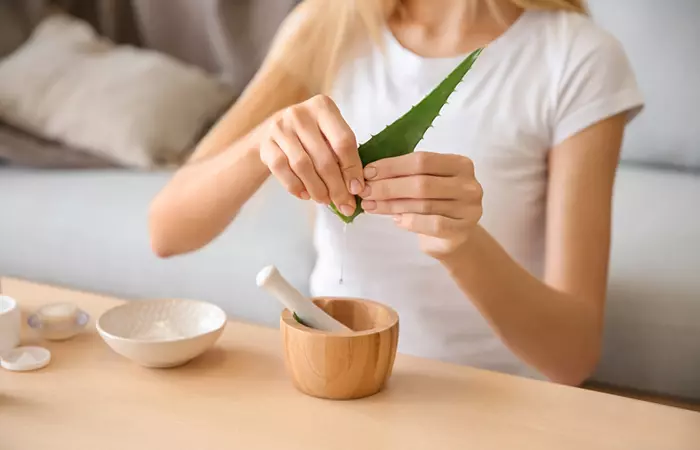
Aloe vera acts against skin dehydration. It soothes the skin and helps manage wound healing. It also treats the pain and discomfort caused by peeling (15).
What To Do
- Cut an aloe vera leaf and extract the gel from it.
- Apply the gel to the peeling area and leave it to absorb into the skin.
- Repeat this process (about 3-4 times) daily for best results.
4. Petroleum Jelly
The occlusive properties of petroleum jelly help lock moisture in the skin and improve barrier function. A study published in the Journal Of The American Academy Of Dermatology found that petroleum jelly can help the skin heal faster after damage instead of delaying it. Once applied, it spreads through the outer skin layers rather than forming a thick barrier (16). This shows it supports skin repair while still preventing moisture loss. Thus, it may help hydrate the skin and speed up the healing of fingertip peeling.
What To Do
- Apply petroleum jelly to the affected area.
- Leave it on for 30 minutes.
- Wash it off thoroughly with lukewarm water.
5. Natural Plant Oils
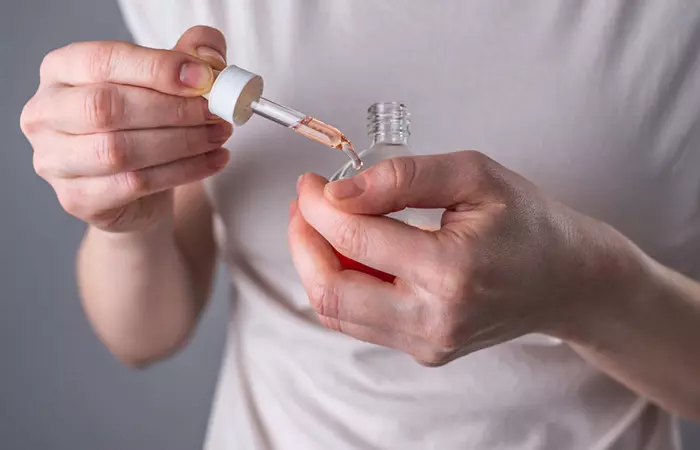
Most of the plant oils hydrate the skin and improve wound healing (17). Regular use of coconut oil, almond oil, sunflower seed oil, olive oil, or jojoba oil may improve peeling skin.
What To Do
- Dab a few drops of oil on the affected area. You do not need to wash it off later.
- Repeat this remedy 2-3 times a day.
In some cases, natural remedies will not be enough to heal fingertip peeling. You can also try a few common OTC medications to counter the problem.
Over-The-Counter Treatments For Fingertip Peeling
If the home remedies do indeed fail to give you relief then one should consider the over-the-counter methods which are available. Look into the following solutions to treat peeling of the fingertips.
- Moisturizing creams with urea or lactic acid in them. They can protect, hydrate, and soothe or cool the skin (18).
- Hydrocortisone creams for skin irritation and allergies. They reduce swelling and discomfort (19).
- Ibuprofen or aspirin for pain relief at the affected site.
- Antifungal ointments can be helpful if fungal infections develop.
If your problem persists despite using various home remedies and OTC treatments, seek help from a doctor. They can help you with best suited treatment and solutions for you. Continue on to the next section to understand the signs that indicate seeking professional medical help is necessary.
When Should You Consult A Doctor?
A mild case of fingertip peeling can be treated with home remedies and moisturizers. However, it may worsen due to other underlying medical conditions.
Dr. Gonzales suggests seeking professional help is better if the fingertip peeling does not improve after a week of proper care. “You should see your doctor if you experience symptoms such as difficulty breathing or intense pain, as this may indicate other serious medical issues,” she says.
Further, if left untreated for long, the affected area may get infected with symptoms like redness, swelling, and pus or yellow discharge. So, it is better to get it diagnosed and take proper treatment.
Your doctor may prescribe the following medications:
- Ointments
- Antibiotics
- Antihistamines
Joanna, a YouTuber, shared her experience with dry and peeling fingertips and mentioned that her condition did not improve even after trying various products. She adds, “My primary care physician prescribed fluocinonide, which was the most helpful thing I used. It took some time to work, but after two weeks, it started to drastically heal (i).” Fluocinonide is an anti-inflammatory medication used to soothe certain skin conditions.
Check out the next section for some tips to prevent fingertip peeling.
How To Prevent Fingertip Peeling
- Keep your skin moisturized. Apply moisturizing creams at least twice a day.
- Avoid taking hot water showers as it may dry out your skin. You may use lukewarm water for washing your hands and bathing.
- Pat your skin dry instead of rubbing it with a rough towel. Avoid using physically aggressive exfoliation methods on dry or sensitive skin.
- Avoid using products with harsh chemicals.
- Consume foods that are rich in vitamins B3 and B7.
- Stay hydrated. Drinking enough water may help hydrate your skin.
 Quick Tip
Quick TipThe Final Takeaway
Fingertip peeling is quite common. It can occur due to environmental factors and underlying medical conditions. Try to identify the cause and treat fingertips peeling accordingly. There are many home remedies available including aloe vera, petroleum jelly, milk, and honey. Keeping your hands moisturized and protecting them from harsh chemicals can prevent further peeling. Early intervention and proper care can help restore smooth and healthy fingertips. However, if the symptoms persist even after a week, you should consult a doctor.
Frequently Asked Questions
Is it normal for your fingertips to peel?
Yes, skin peeling on fingers near nails is not unusual. Mild peeling can be addressed with simple home remedies. However, if the peeling persists for a week, consult your doctor.
How do you get rid of peeling skin overnight?
You cannot get rid of peeling skin overnight. You can try simple remedies such as using petroleum jelly and staying hydrated to help reduce peeling.
Can stress cause peeling fingertips?
Anecdotal evidence suggests that stress may cause the skin to become dry and flaky, leading to fingertip peeling. Stress causes the body to release hormones like cortisol and adrenaline that may have an impact on skin health.
Should I be worried about my hands peeling?
Look for additional symptoms such as swelling, pain, and itching. These signs and symptoms might point to a more serious problem that needs medical care.
Is Vaseline good for peeling skin?
Yes. Vaseline can be used as a treatment for peeling skin. It is also a good home remedy for cracked fingers. Much anecdotal evidence suggests that it helps to moisturize and soothe dry, flaky skin, reducing the appearance of peeling.
Can B12 deficiency cause peeling skin?
Yes, vitamin B12 deficiency can cause various skin problems. Much anecdotal evidence suggests that Vitamin B12 deficiency can result in a number of skin issues, including dryness, itching, and peeling skin. However, limited data is available in this regard.
Illustration: What Causes Fingertip Peeling? How Do You Treat It?
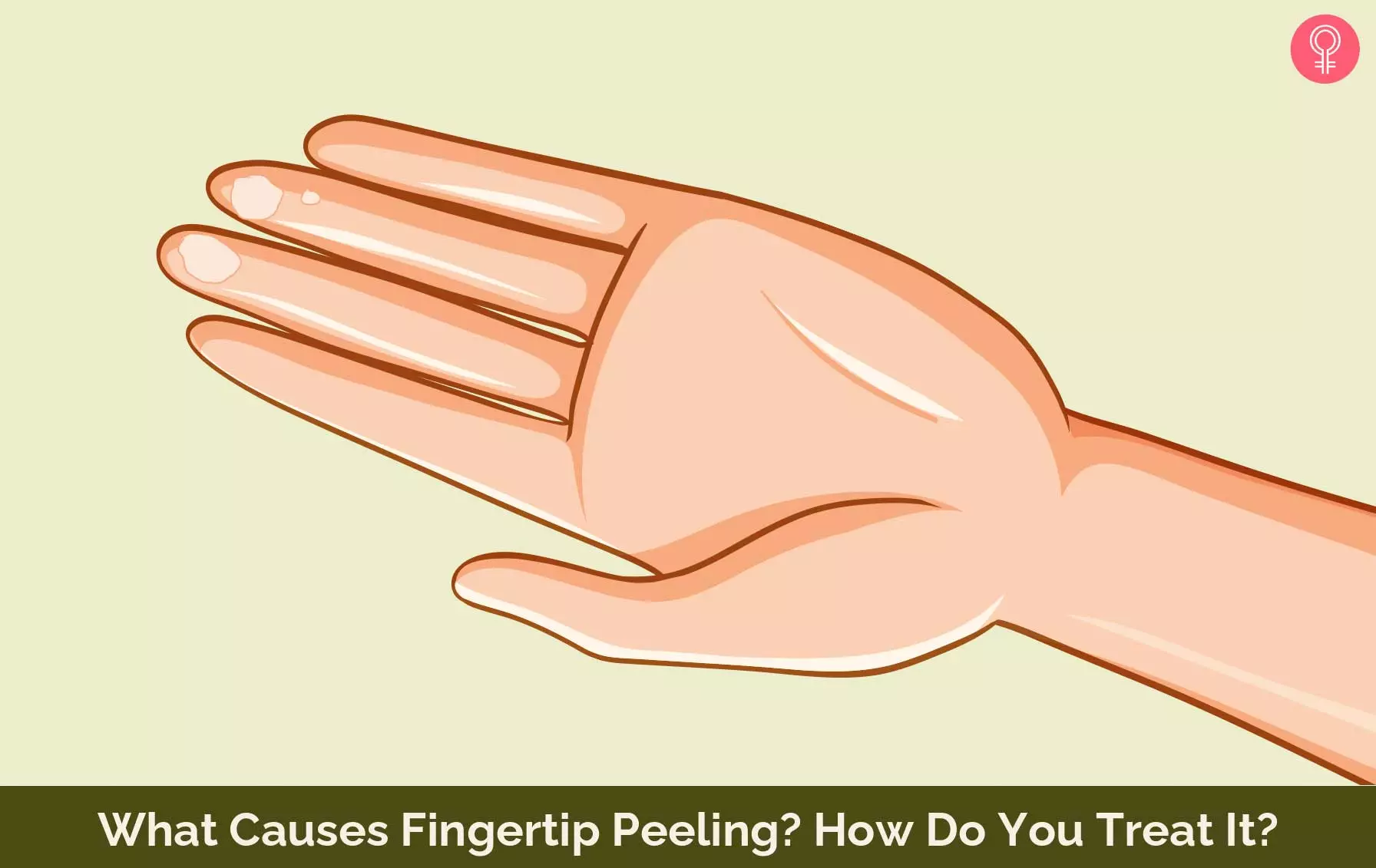
Image: Stable Diffusion/StyleCraze Design Team
Find relief for peeling fingertips with this practical video guide. Click on it to discover five effective remedies to restore softness and health to your precious fingers.
Personal Experience: Source
StyleCraze's articles are interwoven with authentic personal narratives that provide depth and resonance to our content. Below are the sources of the personal accounts referenced in this article.
i. How to heal dry peeling skin | dry fingertipshttps://www.youtube.com/watch?v=6EiaxzAV62U
References
Articles on StyleCraze are backed by verified information from peer-reviewed and academic research papers, reputed organizations, research institutions, and medical associations to ensure accuracy and relevance. Read our editorial policy to learn more.
- Regular use of a hand cream can attenuate skin dryness and roughness caused by frequent hand washing
https://www.ncbi.nlm.nih.gov/labs/pmc/articles/PMC1397860/ - Effects of winter indoor environment on the skin: Unveiling skin condition changes in Korea
https://pubmed.ncbi.nlm.nih.gov/37357654/ - Latex Allergy
https://www.ncbi.nlm.nih.gov/books/NBK45164/ - Nicotinic acid/niacinamide and the skin
https://pubmed.ncbi.nlm.nih.gov/17147561 - Pellagra
https://pubmed.ncbi.nlm.nih.gov/16207585/ - Vitamin B3
https://www.ncbi.nlm.nih.gov/books/NBK526107/ - Dietary Reference Intakes for Thiamin Riboflavin Niacin Vitamin B6 Folate Vitamin B12 Pantothenic Acid Biotin and Choline
https://www.ncbi.nlm.nih.gov/books/NBK114304/ - Hand Eczema
https://www.ncbi.nlm.nih.gov/labs/pmc/articles/PMC4037938/ - Psoriasis
https://www.nhs.uk/conditions/psoriasis/ - Kawasaki Disease
https://www.nhs.uk/conditions/kawasaki-disease/ - Keratolysis exfoliativa
https://pubmed.ncbi.nlm.nih.gov/26990340/ - Sunburn
https://www.ncbi.nlm.nih.gov/books/NBK534837/ - Honey in dermatology and skin care: a review
https://pubmed.ncbi.nlm.nih.gov/24305429/ - A novel mechanism for improvement of dry skin by dietary milk phospholipids: Effect on epidermal covalently bound ceramides and skin inflammation in hairless mice
https://pubmed.ncbi.nlm.nih.gov/25816721/ - Evaluation of the Nutritional and Metabolic Effects of Aloe vera
https://www.ncbi.nlm.nih.gov/books/NBK92765/ - Effects of petrolatum on stratum corneum structure and function
https://pubmed.ncbi.nlm.nih.gov/1564142/ - Anti-Inflammatory and Skin Barrier Repair Effects of Topical Application of Some Plant Oils
https://www.ncbi.nlm.nih.gov/pmc/articles/PMC5796020/ - Placebo-Controlled Trial to Determine the Effectiveness of a Urea/Lactic Acid–Based Topical Keratolytic Agent for Prevention of Capecitabine-Induced Hand-Foot Syndrome: North Central Cancer Treatment Group Study N05C5
https://pmc.ncbi.nlm.nih.gov/articles/PMC3020691/ - Hydrocortisone 1% cream and sertaconazole 2% cream to treat facial seborrheic dermatitis: A double-blind, randomized clinical trial
https://pmc.ncbi.nlm.nih.gov/articles/PMC5440452/
Read full bio of Dr. Deepak Jakhar
Read full bio of Swathi E
Read full bio of Anjali Sayee
Read full bio of Monomita Chakraborty






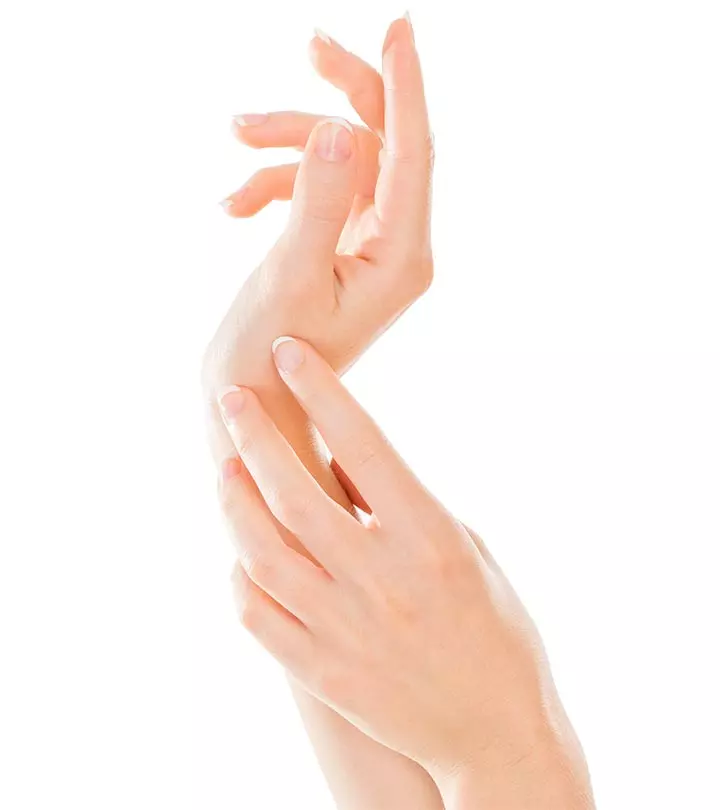
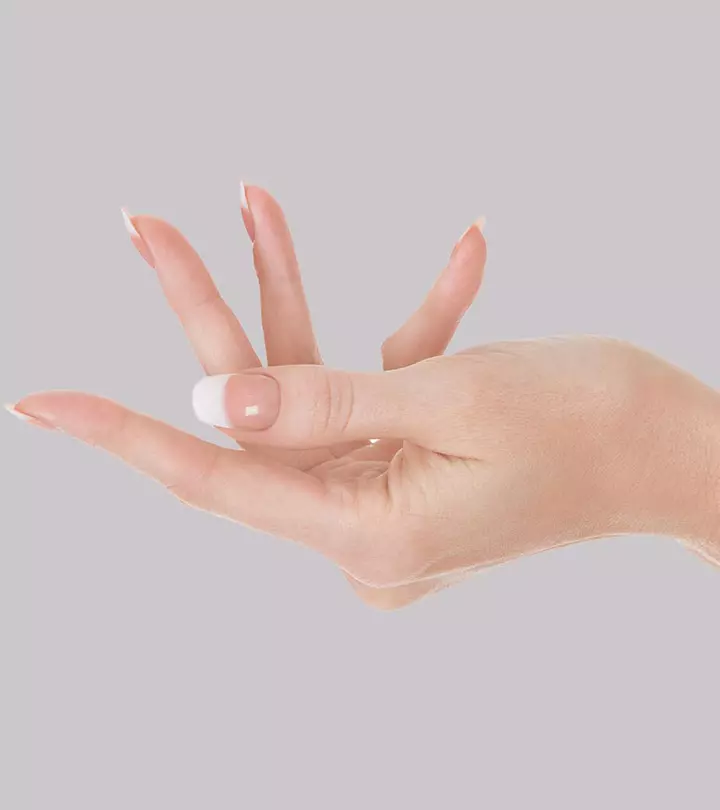
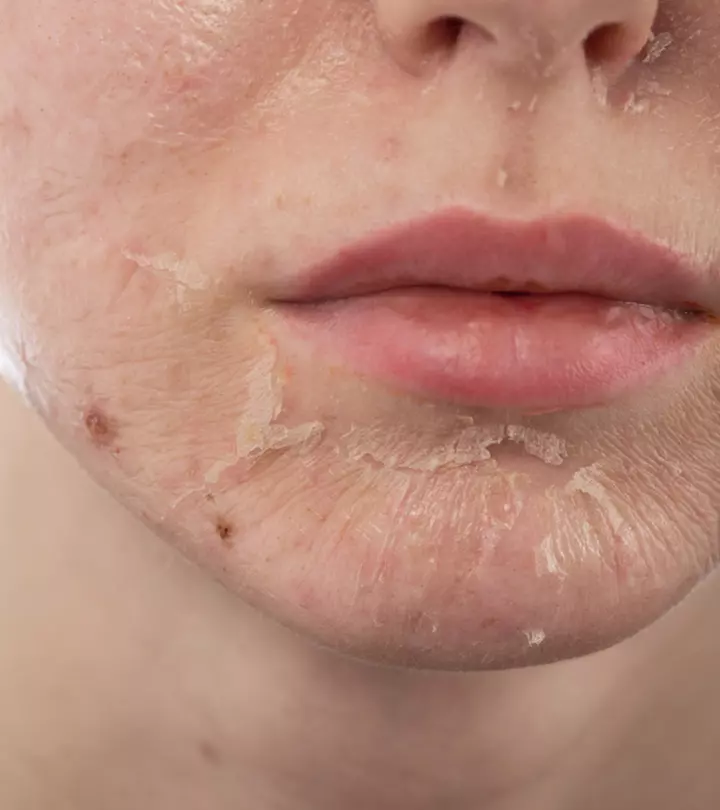
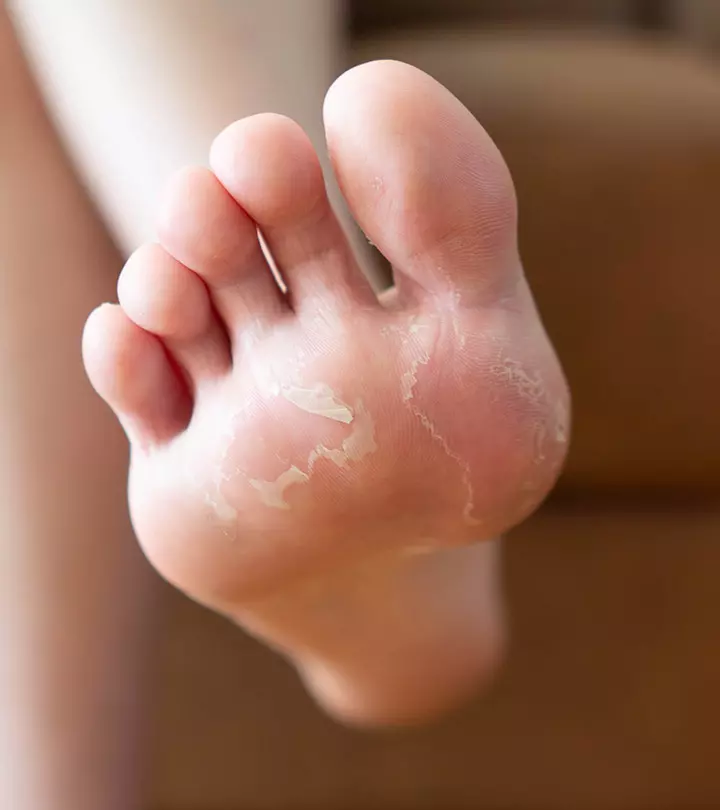
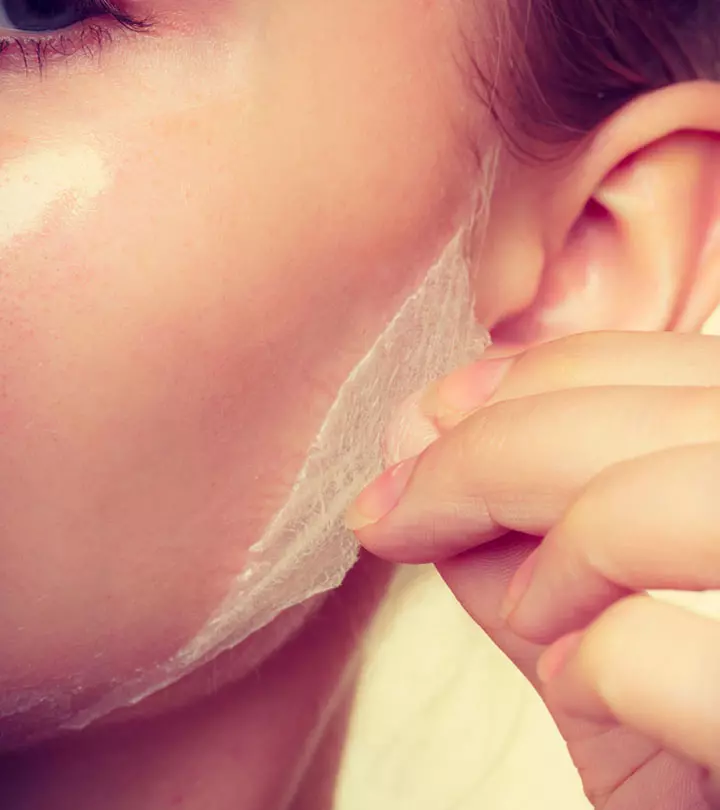


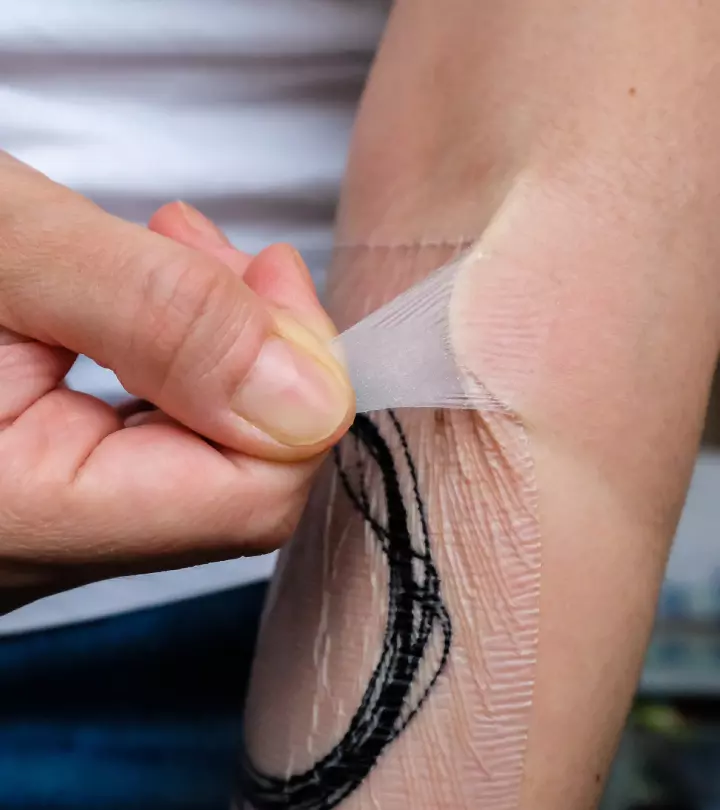
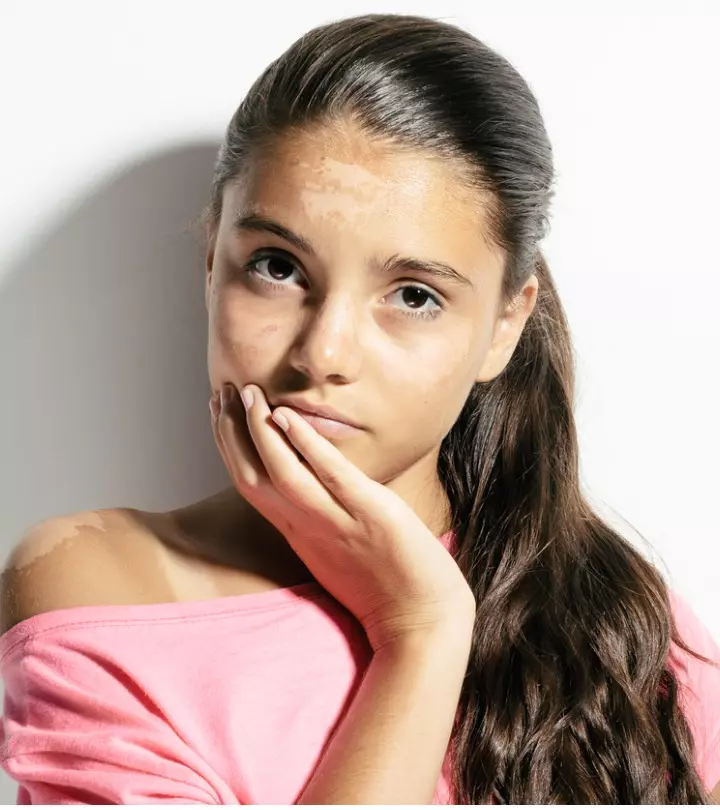
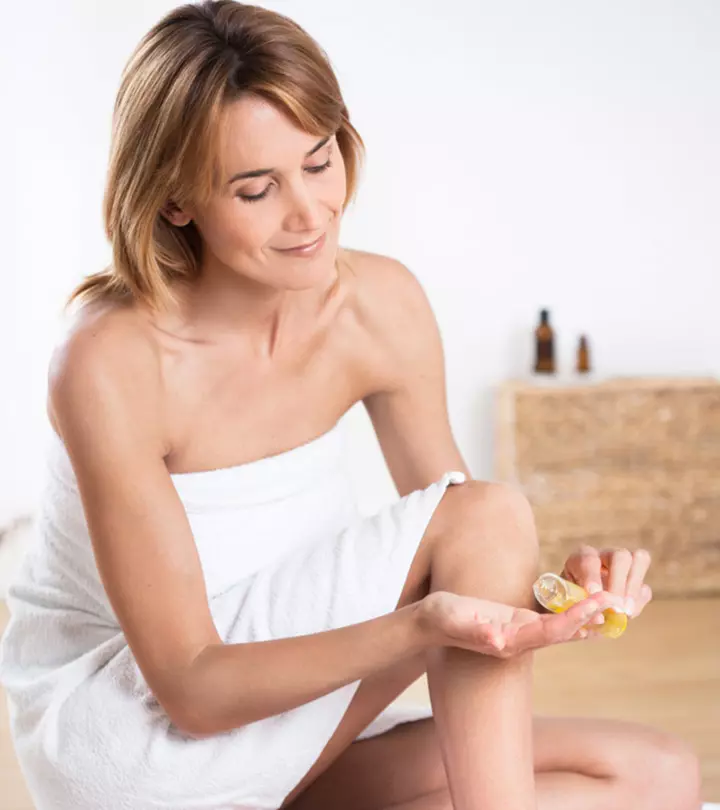
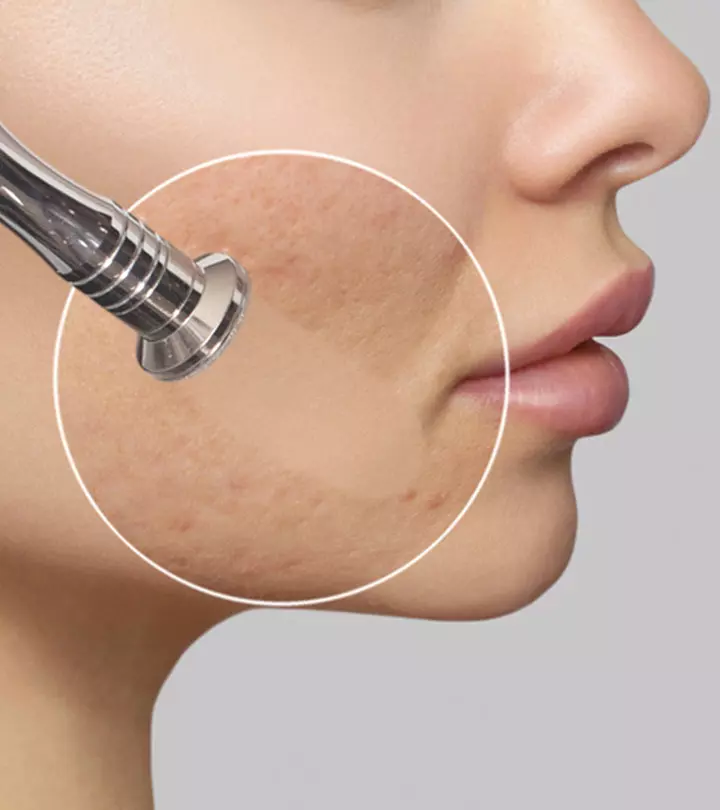
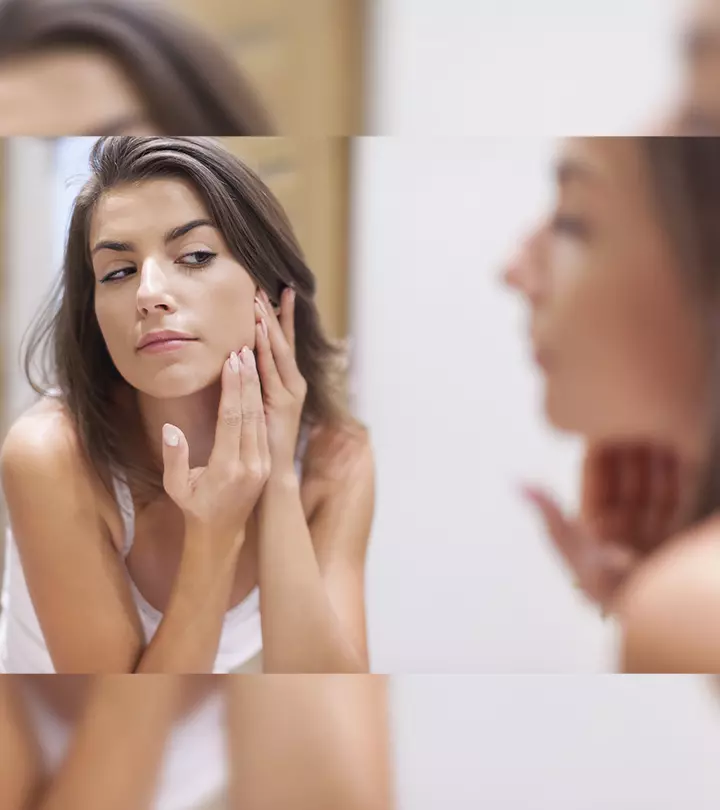
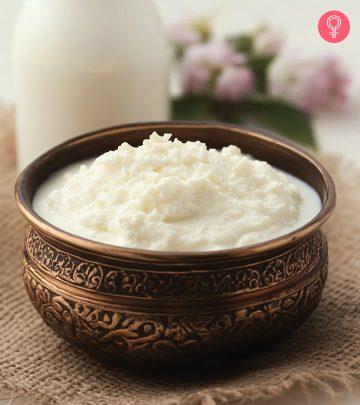
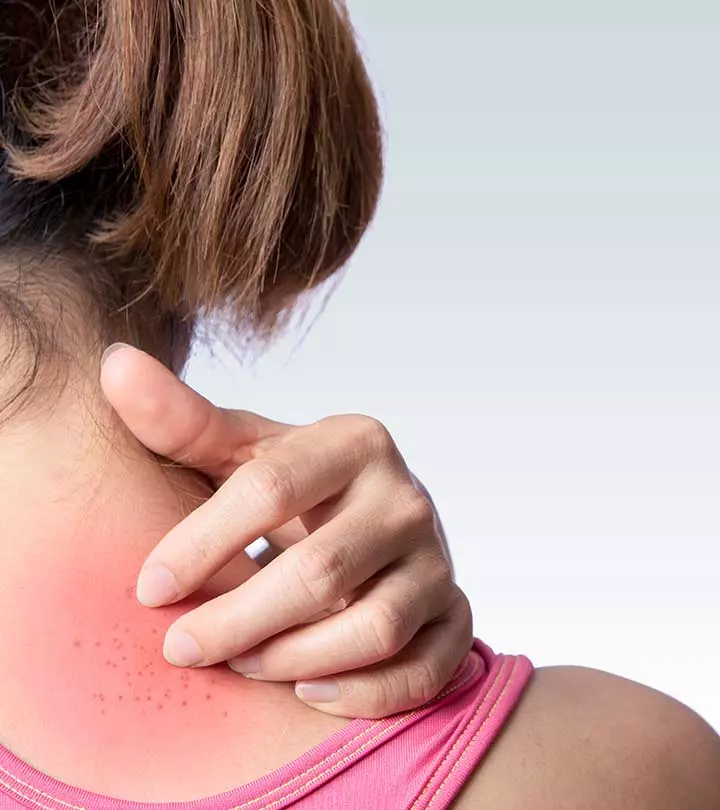
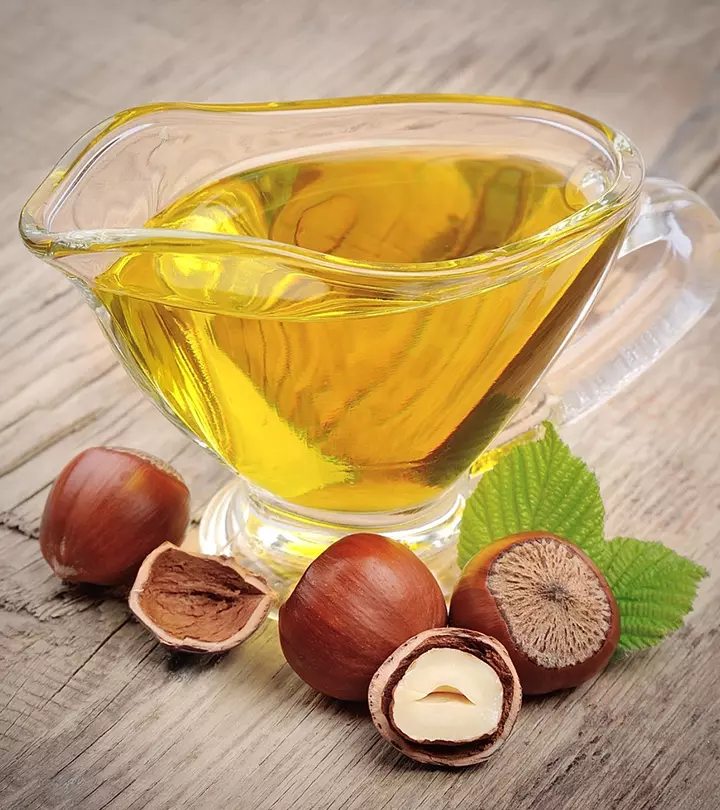
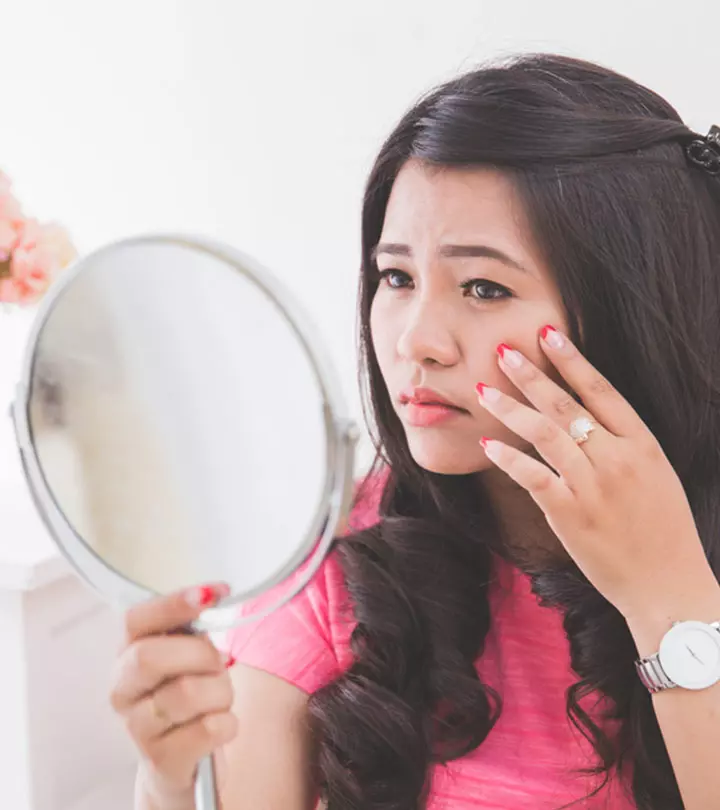
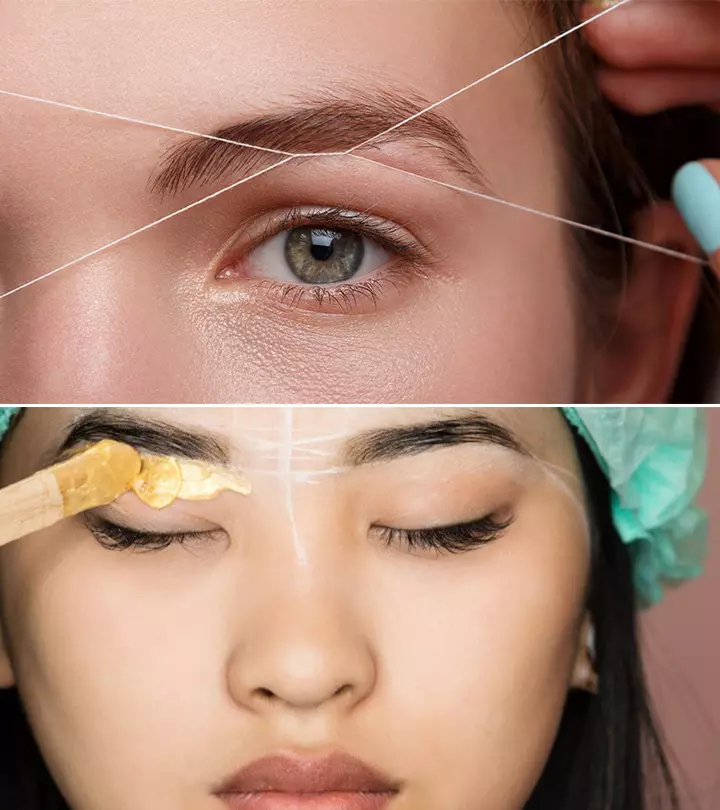
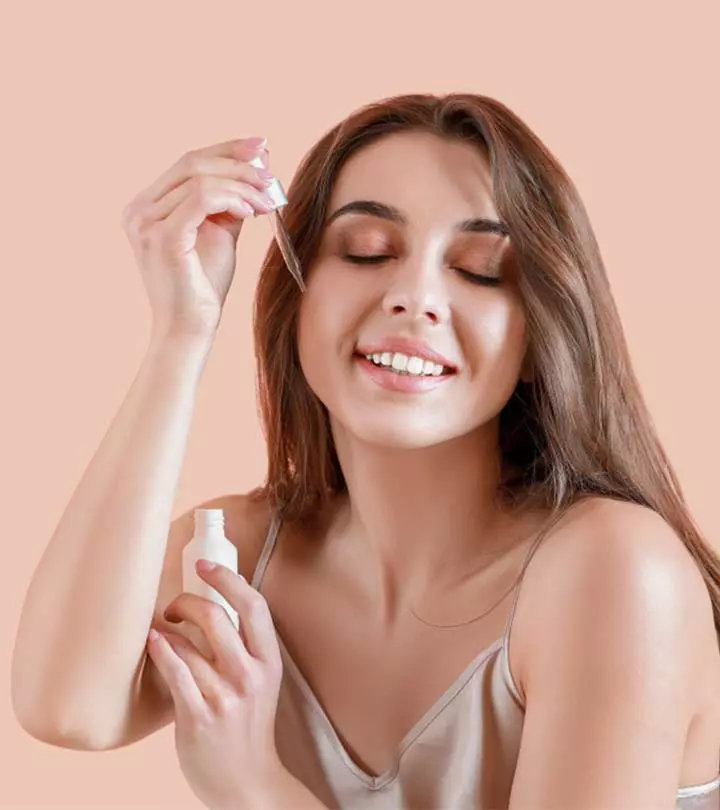
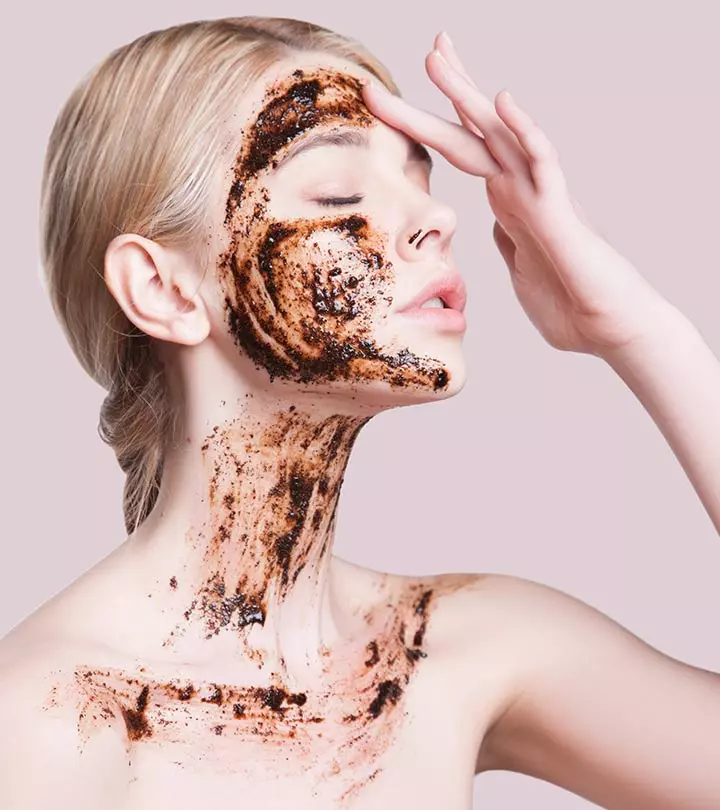
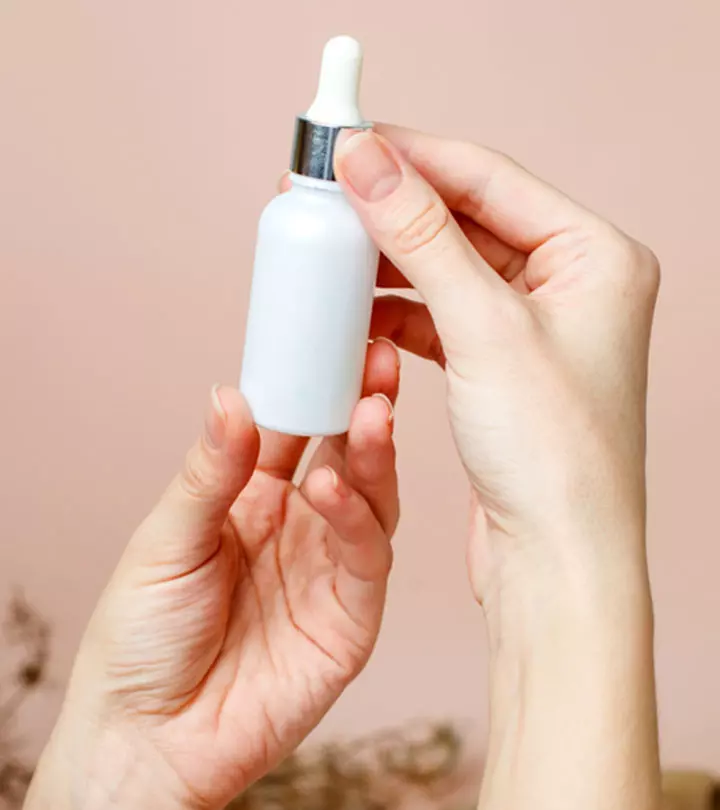
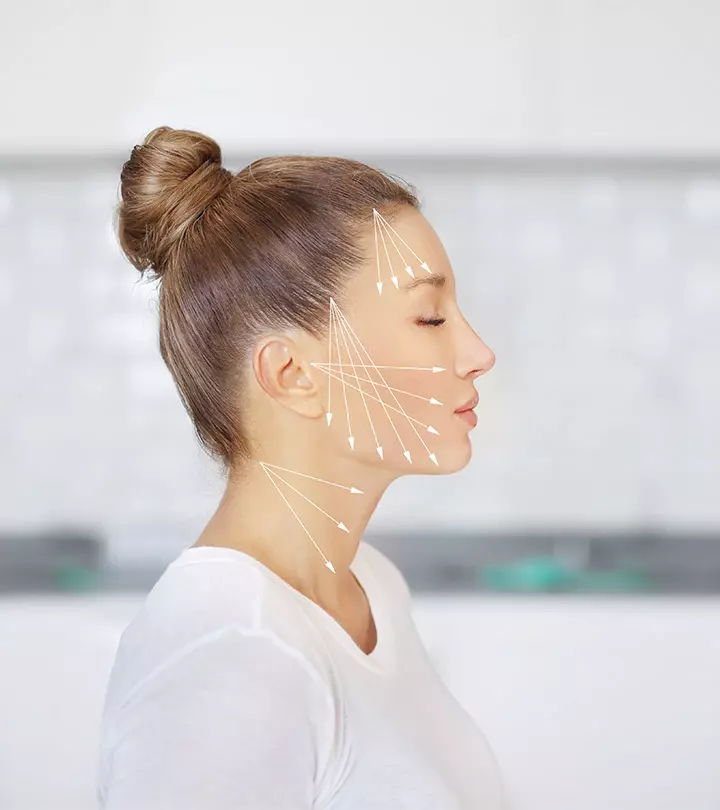
Community Experiences
Join the conversation and become a part of our empowering community! Share your stories, experiences, and insights to connect with other beauty, lifestyle, and health enthusiasts.